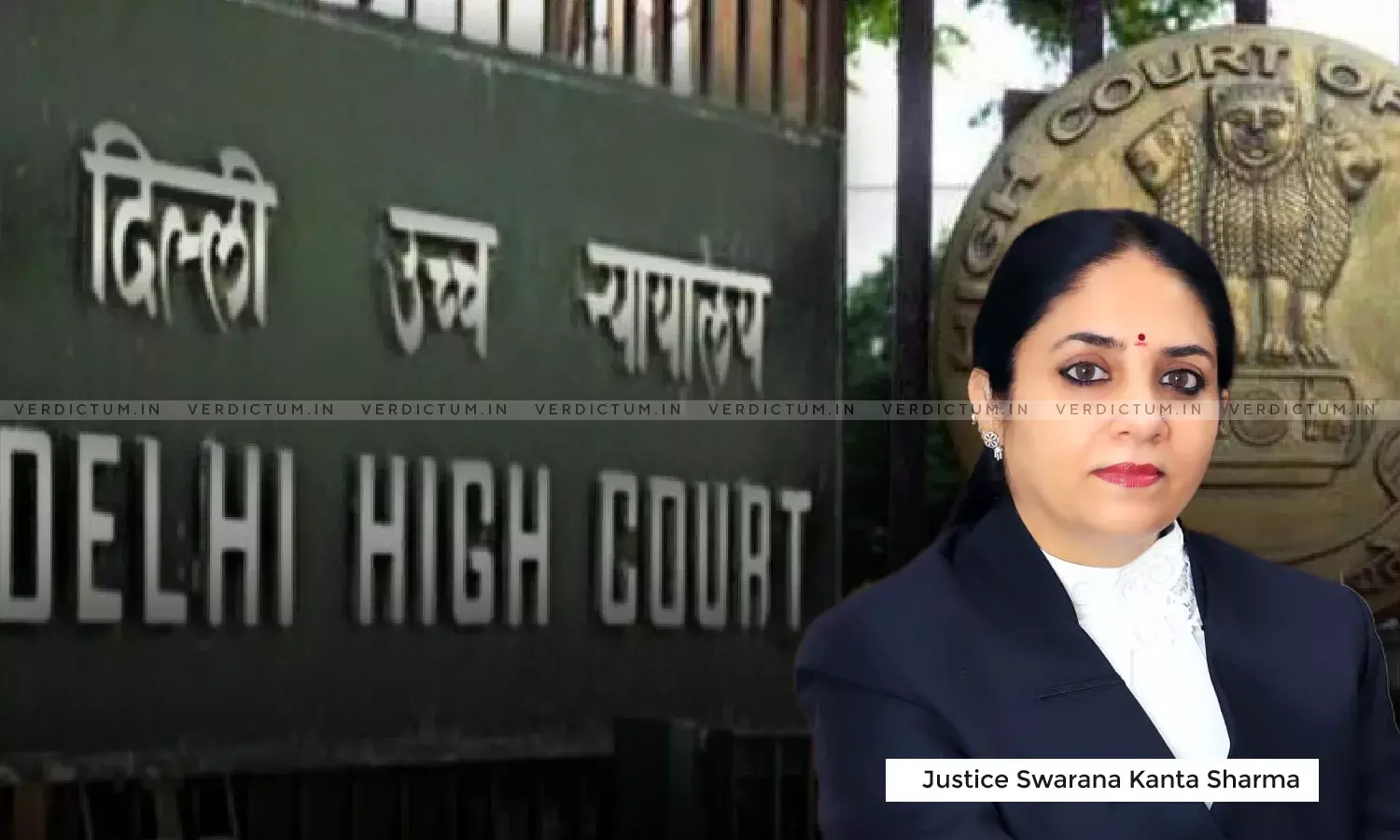Court At Stage Of Framing Of Charge Can Summon Sterling Material Which Was Not Part Of Chargesheet And Was Withheld By Investigator: Delhi HC
While setting aside an order directing the preservation of records in a criminal case, the Delhi High Court held that the revision petition against the interlocutory order was not maintainable and that the application under Section 91 of the Criminal Procedure Code should not have been entertained at a premature stage.
A Single Judge Bench of Justice Swarana Kanta Sharma reiterated that “if the Court is satisfied that there is some material of “sterling quality” which has been withheld by the investigator/prosecutor, then the Court is not debarred from summoning or relying upon the same, even if such document is not part of the chargesheet, at the stage of framing of charge. However, it is to be noted that this exception categorically deals with the situation where the investigation has been completed by the prosecution and the case is at the stage of framing of charge, and at such stage, the Court considers that some material of sterling quality has been withheld, in respect of which the Court can order production of any such document on the asking of accused”.
Senior Advocate Surya Narayan Singh appeared for the Petitioner, whereas Advocate Satish Kumar appeared for the Respondent.
The brief facts of the case were that the petitioners had claimed that the FIR filed against them was entirely false and contained fabricated accounts from the complainant and other witnesses who, in collaboration with the local police, deliberately concealed the true facts to deceive the courts. Therefore, the petitioners resorted to filing an application under Section 91 of the CrPC before the Additional Chief Metropolitan Magistrate (ACMM) to ensure that the accurate facts were presented before the trial court for the establishment of the truth. On 10.04.2023, the ACMM allowed the petitioners' application, directing the preservation of specific records. Challenging this order, second respondent approached the court of the Additional Sessions Judge (ASJ) through a revision petition and in the impugned order, the ASJ overturned the ACMM's order.
After considering the submission, the Bench found that the genesis of the matter was that the second respondent and her associates, including one ACP 'SD', had attempted to extort money from the petitioners.
At the same time, the Bench noted that the directions issued by the ACMM in his order did not determine any significant rights or liabilities of the parties involved.
The Bench referred to the Supreme Court's decision in the case of Sethuraman v. Rajamanickam [(2009). 5 SCC 153], where it was held that the orders dismissing applications under Section 311 and Section 91 of the CrPC were considered interlocutory in nature as they did not make a final determination, and observed that the revision petition filed before the ASJ was not maintainable as it pertained to an interlocutory order.
Further, the Bench observed that in a criminal case, the victim possesses participatory rights from the stage of investigation to the conclusion of proceedings in an appeal or revision.
Accordingly, the Bench concluded that the ACMM had erred by not issuing notice and granting an opportunity for a hearing to the complainant before issuing directions regarding the investigation.
The Bench also noted that the investigation in the present case was still ongoing, and it had not been completed by the investigating agency. Additionally, the Court had not taken cognizance of the offense, and the accused persons had not been summoned.
Therefore, the Bench observed that the application filed by the accused/petitioners under Section 91 of the CrPC should not have been entertained by the ACMM.
The Bench also remarked that one of the directions issued by the ACMM was that the Joint Commissioner of Police should personally oversee the investigation regarding the role of an ACP in the case. The accused had alleged that the ACP had been involved in threatening and extorting money from them in relation to the case. The Bench therefore pointed that issuing such a direction in an application filed by the accused under Section 91 of the CrPC, before the Court had even taken cognizance of the matter lacked legal foundation.
Therefore, the High Court concluded that the ACMM had made a legal error by granting the petitioners' application under Section 91 of the CrPC at a stage where the investigation in the case had not been completed, and the court had not taken cognizance of the matter.
Cause Title: Vikram Kathuria and Anr. v. State and Anr. [Neutral Citation: 2023: DHC: 7040]
Click here to read/ download the Judgment












